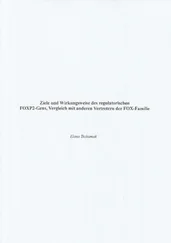Having recently been made Head Prefect, it’s my duty to write a new chapter of the handbook that each new pupil is given on his first day, that awful first day when you just think you’re not going to be able to stand it. I take this responsibility very seriously, just as seriously as I take keeping the juniors in order and being a good ambassador for the Academy when we have to leave the grounds to round up the runaways. I’ve consulted the annals of school history, and I found mention of an act of disobedience committed by two moderately promising students — it happened twenty-five years ago, and the consequences were quite grave. I conducted interviews with Madame de Silentio herself, and with those teachers who remembered what had happened, and I’ve pieced together a narrative that I’d like to try out on you. I think it makes an invaluable cautionary tale for any new boy who is thinking of defying our headmistress.
Charles Wolfe and Charlie Wulf met in their second year of studies at Madame de Silentio’s, when they were assigned neighbouring beds in the same dormitory. Charlie, at seventeen, was Charles’s elder by a year. By all accounts the boys took notice of the fact that they essentially had the same name. In diaries, and in correspondence intercepted by staff, each boy declared that there must be meaning in the similarity between their names. They felt they were brothers. Interesting, because they were very different.
Photographs reveal Charlie Wulf to have been a bit of a pretty boy. Eyes like great big puddles, Byronic waves of hair, the spare frame of a longtime drug addict — before joining the student body he had been forcibly and abruptly weaned off opium in our soundproof music room, which was placed off-limits for three weeks. It seems favouritism brought Charlie to the Academy. I refer to the letter written to Madame de Silentio a full year before he was admitted, in which his mother and father, taking turns to write a word each, explain that in the silence of the heart every parent chooses a favourite. In Mr. and Mrs. Wulf’s case they chose the same one, much to the jealousy and rage of their other nine children. Siblings always detect these things, but without proof there’s not a lot they can do. Charlie seemed to have been born an escapist; at the age of seven, having complained of a boredom that made him “feel sick in his tummy,” he broke into his father’s liquor cabinet and drank himself into a state of catalepsy. By the age of fifteen he was seeking oblivion in opium dens, and since his wealthy parents made him a separate allowance twice the size of that allotted to each of his siblings, Charlie was able to buy almost as much oblivion as he desired, running through a month’s allowance in less than a week and beatifically starving until the time came for the next installment. The letter from Mr. and Mrs. Wulf also lists certain diseases Charlie had contracted and been treated for, ending with a deadly scare that was the last straw. He’d been sent to rehabilitation clinics and boot camps, and each time he had escaped with the aid of his captors. Mr. and Mrs. Wulf believed Madame de Silentio’s Academy was the only institution without a trace of indulgence at its heart, and therefore the Academy was the only place that could clean their son up. They would give custody of their son over to Madame de Silentio if it would save his life. Charlie’s life shall be saved, Madame de Silentio assured them. Better than that — his life shall be made useful. Charlie Wulf was weak of character, consistently receiving D grades or lower for his Decisive Thinking. He was also a cheat when it came to exams, and a plagiarist when it came to essays — he was punished for the latter two faults twenty-seven times in his first year alone. These faults aside, he was well liked for his easy manner and the way he successfully avoided snitching on others, even when it was easier, perhaps even advantageous, to do so.
Charles Wolfe was fair-haired, and secretive. His features were crooked and unattractive. Much less is known about him, much more conjectured. Charles’s father was a government official in India; his household included several guards and a poison taster, all of whom were present at every meal. Major Wolfe’s very brief letter to Madame de Silentio, referring to Charles simply as “the boy,” indicates disgust at Charles’s habit of stealing things. Blue things — always blue things — the boy seems to reckon there isn’t enough blue in the world. See what you can do with him. Mr. Curie, one of our science teachers, recalls seeing Charles Wolfe leaning against the Academy railings during recreation, drinking Coca-Cola through a blue straw, with such a tough look in his eyes that no one dared mock the dainty way he took his refreshment. Mrs. Engels, one of our English Literature teachers, recounts her suspicion, unsupported by any documentation, that it had taken Charles Wolfe much longer than normal to learn how to speak. He seemed to have learnt to read long before he learnt to speak. Mrs. Engels says that she sometimes remarked on the unusual way Charles Wolfe formulated his sentences, and when she did he fell silent and seemed ashamed. Charles Wolfe held grudges. He wrote in his diary that he would like to kill Mrs. Engels. It seems Charles Wolfe was capable of hating with a single-mindedness that sometimes took him into trances. Subdue this, he wrote several times in his diary. Subdue this. Charles Wolfe took every prize and passed every test and exam with distinction. He was going to make a first-rate husband. The teachers weren’t sure about him, though. They kept an eye on him. There had been incidents in the first year — there had been no evidence that the incidents were connected to him. But still. We won’t blame them for their vigilance.
The grounds of the Academy are extensive. One asset we used to boast, but are now denied access to, is the lake. A thirty-year-old prospectus shows a group of prefects boating on the lake as a treat, but the lake has a dark and forbidding aspect, and the prefects don’t seem to be having much fun. The boys were allowed to boat occasionally, but they were forbidden to swim. And Charles and Charlie seem to have been magnetised by the lake. The water is very green and has a sweet taste, both boys wrote in their diaries, at different times. Exactly the same phrase at different times. Charles Wolfe goes on to conjecture that it’s a vial of the lake water that the matron carries around with her and uses when someone needs medicine in his milk. He notes that after a few mouthfuls of the lake water you “feel fine. Like a king.” He also notes that Charlie Wulf guzzled the lake water in a manner that worried him slightly. If you’re wondering about the diaries, Madame de Silentio insists that we keep them, and that we write full accounts of our thoughts and our days. Then she spends all Sunday reading them. It’s a tricky business, writing the diaries. Madame de Silentio doesn’t want to be acknowledged in our diaries, so we have to write them as if we don’t know anyone’s going to read them. It’s like prayer, somehow. She never comments or acts on what she reads in our diaries, no matter what’s in there — that makes it even more like prayer.
In his diary, Charlie, a weak swimmer, records the afternoon he leant too far into that sweet green taste and fell: Into the shock of the water. My mouth opened and the lake rushed into me, a strong, cold, never-ending arm rammed down my throat. I didn’t know you could fall like that inside a body of water, that when you fall it’s as hard and helpless a thing as falling through air. Charles Wolfe dived and retrieved his pathetic friend, and they both saw something incredible. I say incredible even though during my interview with her Madame de Silentio shrugged and spoke of it as something quite commonplace. In swimming to shore, the boys stirred the water with open eyes, and beneath them they saw a bed of silt and rock with a shape pressed into it. Each stroke was firm and clear, even the gap between the emaciated thighs. It was a man down there. A man trapped at the bottom of the lake, wrapped round and round with a great rusty padlocked chain. His face seemed very white and stiff to them at first, then they realised that a mask had been forced over it — a commedia dell’arte mask, with its thick ivory grimace. Under the weight of all that water, the man was alive, and he saw them seeing him, and he struggled, and struggled. “Yes, I had a prisoner out there,” Madame de Silentio says. “Thought it was the safest place, but no. Reynardine was his name. No use dwelling on all that, though. Won’t do a blind bit of good.”
Читать дальше












